Photo: Robby Klein

interview
HARDY On New Album 'Quit!!' & How "Trying To Push My Own Boundaries" Has Paid Off
On his third album, the self-described "black sheep" of country music proves he's here to stay.
Haters take note: nothing fires up a country boy like HARDY more than a naysayer. And this redneck has a long memory.
Despite the coveted catalog of country music hits to his credit — tunes he wrote for artists like Florida Georgia Line, Blake Shelton and Morgan Wallen, plus his own work as a solo artist — HARDY's third album begins with a three-minute response to a heckler who once left a nasty note in his jar in place of a tip.
That moment may have occurred a decade ago, but it's key to HARDY's defiant persona. In fact, the album's title is exactly what that note read — Quit!! — and its cover art is the actual napkin the message was written on, which the singer/songwriter has held on to all these years.
HARDY laughs off the memory at first, but as the title track plays on, his olive branch soon turns to coal. "I'm not the GOAT, I'm the black sheep hell-bent to find closure," he barks as the song escalates. "I can't let go — a note somebody wrote like ten years ago put a chip on my shoulder. If you wanted me to quit, you should've saved it, bro."
The takeaway here? HARDY won't quit. Or, to quote another Quit!! banger, "I DON'T MISS," when a hit is in the crosshairs, he "don't hit nothing but the bull's eye."
No doubt, he has the numbers to back it up. HARDY linked up with Florida Georgia Line after moving to Nashville in the 2010s, and landed his first country No. 1 as a songwriter in 2018 thanks to the duo and Wallen, with the smash "Up Down." As he began building a solo career — releasing a pair of EPs in 2018 (This Ole Boy) and 2019 (Where to Find Me) — he continued delivering chart-topping hits for FGL, Shelton, LOCASH, Wallen, Dierks Bentley, and more. As Quit!! arrives, HARDY boasts 15 No. 1 hits: 11 as a songwriter, and four as an artist.
Along the way, HARDY also established his Hixtape series, a countrified version of a hip-hop mixtape now three volumes deep, bringing together friends and superstars like Keith Urban, Trace Adkins, Thomas Rhett and a host of other stars to collaborate. Not only did Hixtape Vol. 1 land HARDY his first No. 1 as an artist in his own right — the Lauren Alaina and Devin Dawson team-up "ONE BEER" — but it put HARDY's shapeshifting musicality front and center.
"A lot of people ask, 'When did you decide to jump into the rock and roll thing?' HARDY, who uses his last name as his stage name, says. "I feel like I've always dipped my toes in it here and there, and a lot of my songs have been really close to it but not quite there. Hixtape, especially Vol. 1, I was definitely foreshadowing my sound, and I really didn't even know it at the time."
By now, modern country musicians regularly reflect influences from beyond Nashville's confines. But HARDY has played a big role in rock's country crossover, as he gradually showed more of his Mississippi-bred, guitar-riffing roots on his 2020 debut album, A ROCK. He fully embraced them on the 2023 double album, the mockingbird & THE CROW; while the first half has more country-oriented tunes like the Lainey Wilson-featuring murder ballad "wait in the truck," he lets loose on THE CROW.
"THE CROW will always be that cornerstone moment that defined who I am," he asserts. "It gave me the courage to do this Quit!! record."
HARDY has not only been an architect of this genre blending, but also its chief proponent — so much that in 2023, the L.A. Times crowned him "Nashville's nu-metal king." On Quit!!, he cashes in that currency with the gargantuan guitar riffs and bombastic beats popularized by acts like Limp Bizkit, and leans deeper into the rhythms and playful lyricism of hip-hop, a skill he recently flexed at the request of Jimmy Iovine and Dr. Dre on a hicked-up rendition of Snoop Dogg's G-funk classic "Gin and Juice."
Ironically, the further HARDY gets from straightforward country music, the closer he gets to who he really is as an artist. Below, the chart-topping star details the backstory of Quit!!, his conflicted relationship with the country-music formula, and how he'll continue pushing boundaries within the genre and beyond.
You grew up in the small town of Philadelphia, Mississippi. What role did music play in your upbringing?
My dad introduced me to rock and roll in general, but it was his era of rock and roll. Whatever you define as classic rock and everything under that umbrella. But music was a big deal in Philadelphia and it still is. There were tons of cover bands, and a lot of [my] buddies were into music. So that had a big influence on me.
I, thankfully, was in that last era of kids that the only time they got to hear a song was on MTV or on the radio. And I remember hearing "In the End" [by] Linkin Park, and then getting Hybrid Theory on CD. I remember the first time I saw [Limp Bizkit's] "Nookie" video on MTV. I was heavily influenced by all that stuff. I'm very thankful that I grew up in the era before the internet was really big.
Were you into country music back then?
Surprisingly, not at all. Not until Eric Church, Brad Paisley, a couple of people started singing about stuff that really piqued my interest. But no, I didn't really listen to much country.
I think the only country that I listened to, if you even call it that, was Charlie Daniels. He played at the Neshoba County Fair. I got to see him twice. But even he was more of, like, you'd almost call it more Southern rock. For some reason, country music at the time didn't do it for me. It took me a long time to get into it.
You recently re-envisioned "Gin and Juice." Were Snoop Dogg and Dr. Dre big artists for you when you were younger?
Yeah, especially Snoop. Snoop was in his later years when he started doing more pop stuff. I was a little too young for Doggystyle. I was 4 years old when Doggystyle came out, so my folks weren't letting me listen to that. But I will say, [Dr. Dre's 1992 album] The Chronic and especially [1999's] Chronic II, those records were huge. And anything that Dre touched after that, like all the beats he produced for 50 Cent, and obviously I'm a huge Eminem fan. I mean, all the way up to Kendrick [Lamar]'s early stuff.
I don't know how much they influenced me musically, but I definitely listened to both of them at the time.
You've got so many projects and co-writes and stuff going on, always. Is it easy to pinpoint where your journey to Quit!! began?
I can tell you for a stone-cold fact that "BOOTS" [from A ROCK] is responsible for the album Quit!! That was the first song that I ever wrote that had a breakdown in it. And when I played that live before it came out, people didn't know it, so it was a little different then. But once the song came out, and we started playing it live, it was bigger than "ONE BEER." It was bigger than "REDNECKER." It was the biggest song in our set, and to this day, it's still one of the biggest songs in the set.
But because I love the rock and roll sound so much, that's the song that I was like, Okay, this is working, because these people are losing their s— when we go into this song. So, then, that inspired me to write "SOLD OUT," and once "SOLD OUT" came out, and we started playing that song, that song was even bigger than "BOOTS," and it was heavier than "BOOTS." After "SOLD OUT," it was "JACK," and it's just a snowball of writing heavier songs and having the courage to keep going. "BOOTS" crawled so that Quit!! could run, you know? That was definitely the song that started it all.
The new album builds on the mockingbird & THE CROW and the direction you were heading.
Yeah, I think it builds on it maybe in the sense that there's a lot more screams, and maybe more breakdowns, and it's a little heavier than the mockingbird & THE CROW at times. But it is also very different. There's a lot more, like, pop-punk stuff and, I don't even know what you would call it, post-hardcore-sounding s—.
But all of the rock and roll stuff stands on the shoulders of THE CROW. It will always be that cornerstone moment that defined who I am. I mean, it definitely teed me up. It gave me the courage to do this Quit!! record.
I like that word, courage. It's not a word I expected to hear out of you based on your persona, but that's a very interesting way to phrase it.
No, I mean, the metal and country cultures are very, very, very different. There's never fear, but there's definitely, what's the right way to say that? You know, there's like when we throw like the goat horns and s— on the screen. Country has a big Christian background, and metal is like the exact opposite of that, and those can clash a lot, but there's definitely a little bit of some reserve — it seems to not get too much push back — mixing the two. My mom's not crazy about it, but what can you do?
And you have moments like "wait in the truck," where you're not writing for the party. Do you see yourself pursuing those avenues more often? Does the world want to hear HARDY reflect?
You mean like more of the deeper country stuff?
Correct, yeah.
I hope. That's the s— I love. I feel like they're so few and far between. Like, "wait in the truck," we just got so lucky. I feel like "ONE BEER" was kind of the same. Like, it's gotta be the right day, and the right time, and the right people in the room to really tell a story. It's tough. But I would love to continue to have those cool story songs.
But what I will say is there's a lot of gray area between the black-and-white of HARDY country and HARDY rock and roll. I'm still going to put out country songs. The gray area is that to me and to a lot of people, they're all just HARDY songs. But I have so many songs that I have written that I wanna put out that are so, maybe if they're not storylines, they're even deeper down the rabbit hole of thought-provoking stuff, like "A ROCK," or maybe even "wait in the truck," or even a song I have called "happy," on the last record — just songs that are very, very thought-provoking.
Just trying to push my own boundaries of country music, and not everything is right down the gut, you know, "let's go to radio with it." But just really trying to experiment with what I wanna say with country music. So, yes, there's definitely more of that coming.
You're playing your first headlining stadium gig in September. How has performing in those venues, and anticipating that, informed how you write? Are you writing for the stage?
Yeah, 100 percent. I would say, 75 percent of the time you're writing for the stage — even if it's not for myself, if I'm writing for somebody else — I'm definitely writing for the stage. I cannot tell you how many times I've sat in the room and been like, This s— is going to pop off live! And then try to put the other writers in that headspace.
Like on [Quit!! track] "JIM BOB," when we did the pow-pow-pow! thing, I'm like, just think about how cool it's gonna be live, and living in that headspace, because that's where it all comes to life. That's the end product.
Writing for the stage is something that a lot of people do. And that's why songwriters love going out on the road, is because they go out and they write songs with these artists, but they love watching the show because they get to see what really translates live, and then take that back to the writing room and try to recreate that.
Did that kind of experience have anything to do with you making the move to a marquee artist? Because not all songwriters can make that jump. Or was that always the plan?
Yeah, I mean, it was always that kind of thing. I was fortunate that I got to see Morgan [Wallen] perform "Up Down," and FGL perform a couple of their songs before I made the jump into an artist. I kind of already scratched that itch a little bit.
The Nashville writing scene can seem like a 9-to-5 kind of boring thing. But it doesn't sound that way from the way you describe it.
It's a little bit of both. The funny thing about that is like, if you walk into a publishing company, 10:30, 11 o'clock, whenever people start getting there, it's a bunch of dudes or girls standing around drinking coffee, hanging out. It's like a break room, and then everybody's like, "All right, well, y'all get a good one." And then everybody goes into their own rooms. That part of it is very 9 to 5.
But there is definitely — especially with our group of people, when you get on something that is so special, it's beyond, like, "We're writing a hit today." There's just something that transcends that. I don't know how to describe it, man. That's when it's really, really, really, really great. The Nashville process, that's what it's all about — having those moments in the room where you're like, "This is special," and, like, "We're witnessing something special that is going to affect people on a global or on a nationwide scale."
I remember when we wrote "wait In the truck" and how we were all just gassing each other up because we were like, "Dude, this song is gonna help a lot of people." And that's when the 9 to 5 goes away. We're being creative together, and it's a special thing.
There's been so many moments like that, where you're just so thankful to be a part of a great song, and how hyped everybody is. It's a feeling that's really, really hard to beat.
More Of The Latest Country Music & News
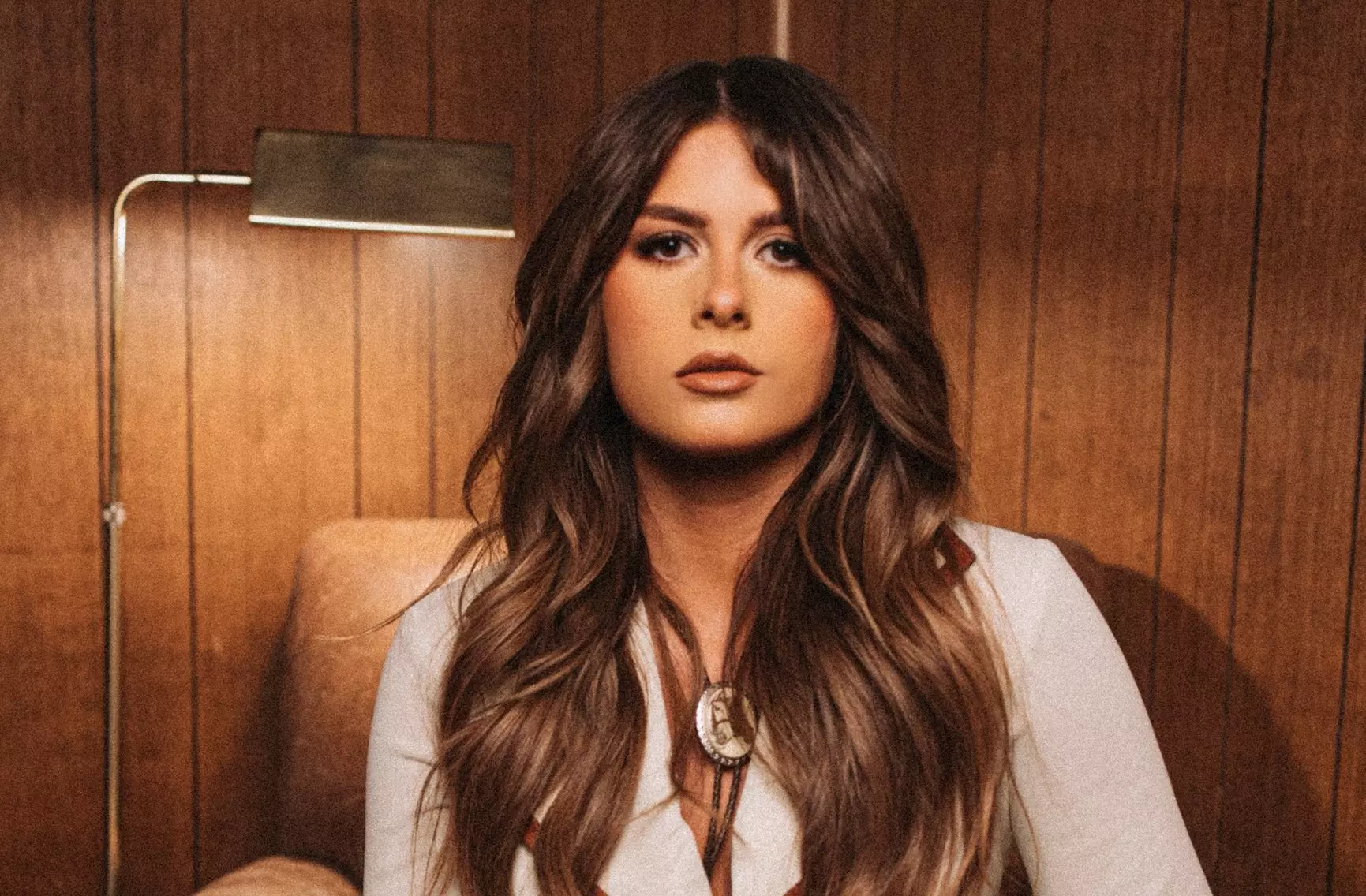
Meet Ella Langley, The "You Look Like You Love Me" Singer Ready To Be Country Music's Next Straight-Shooting Queen
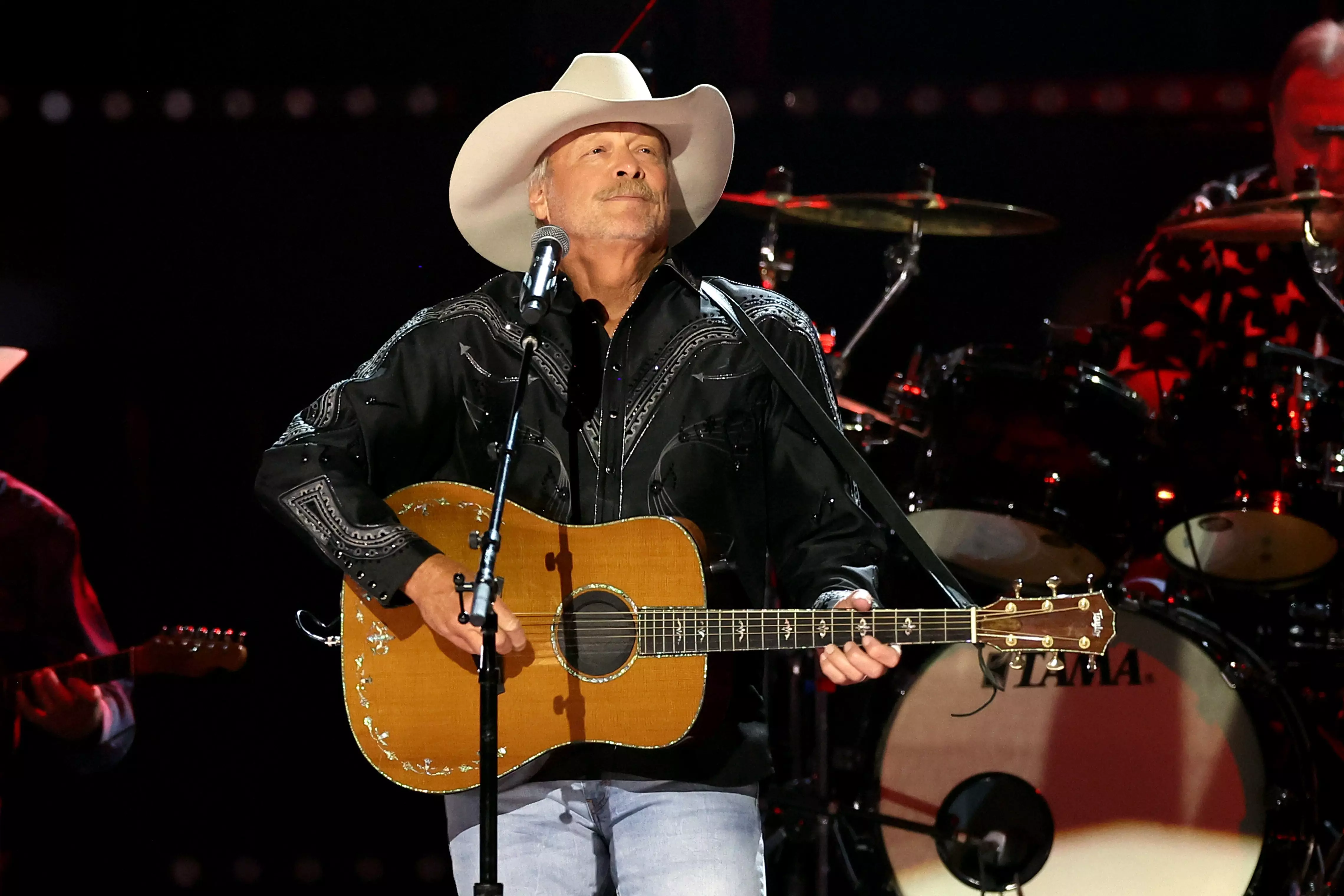
Alan Jackson's Biggest Songs: "Chattahoochee" & 11 More Of The Country Icon's Most Memorable Hits
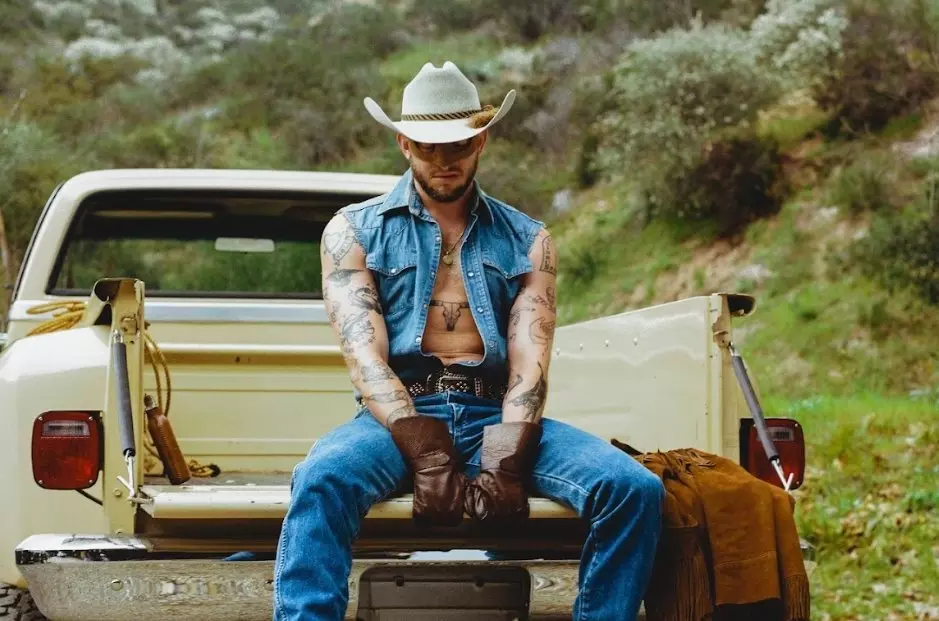
Orville Peck's Road To 'Stampede': How The Masked Cowboy Became Country Music's Most Intriguing Anti-Hero

The Red Clay Strays Offer A New Kind Of Religion With 'Made By These Moments'
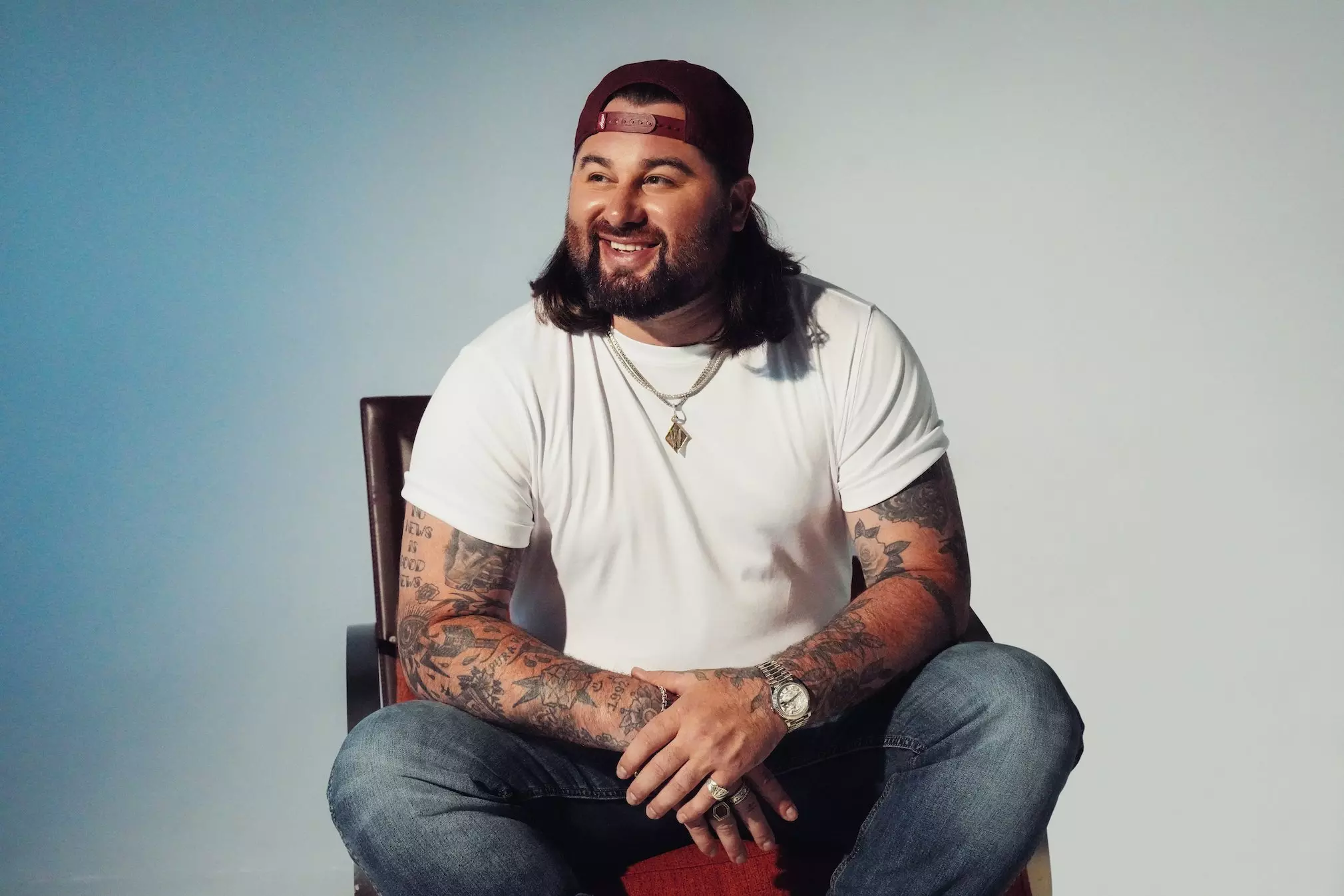
Koe Wetzel On How New Album '9 Lives' Helped Him Tap Into His Feelings
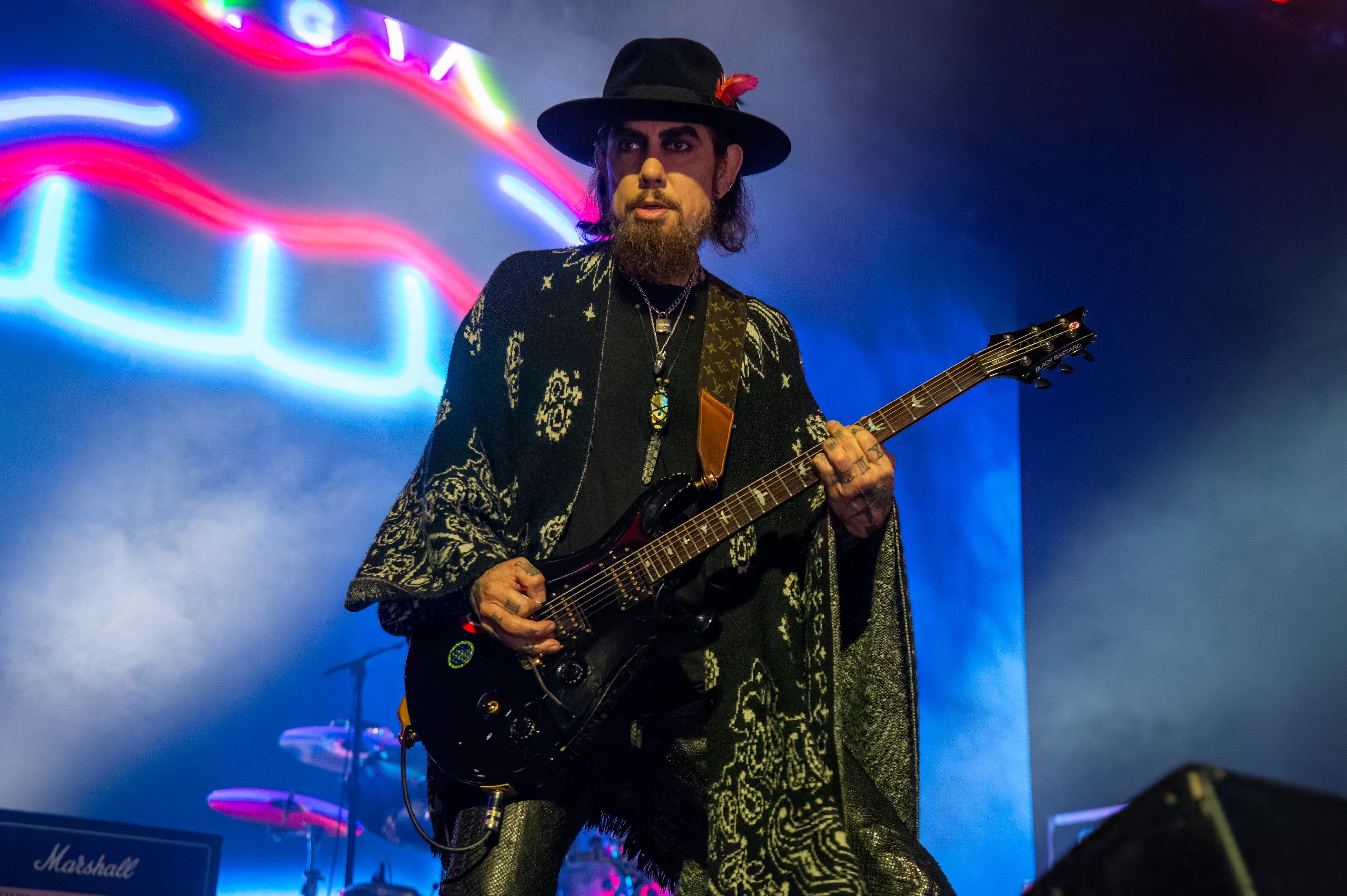
Photo: Joseph Okpako/WireImage
interview
Dave Navarro Talks Jane's Addiction's "Imminent Redemption" & The Foursome’s "Secret Sauce"
“The four of us have no business being together in a band given our backgrounds," Navarro says of his bandmate's musical origins. Despite that, Jane's Addiction is back with a new song and their first U.S. tour in over a decade.
The original members of Jane’s Addiction are a diverse bunch. There’s trippy visionary singer/stylist and Lollapalooza co-founder Perry Farrell; Stephen Perkins, the monster drummer with a goofy-meets-spiritual vibe; and bassist Eric Avery, who opted not to be part of the 1997 and 2001 Jane’s reunions and played with Garbage from 2005 to 2022.
Then there’s multi-faceted musician Dave Navarro, who in addition to his work with Jane's, spent five years with the Red Hot Chili Peppers, and brough his guitar stylings to songs by Janet Jackson, Nine Inch Nails, Alanis Morissette and Guns N’ Roses. The Los Angeles native has made headlines with high-profile romances, TV reality appearances, television hosting duties, and in numerous all-star collaborations and benefit performances.
But Jane’s Addiction, which formed Los Angeles in 1985, has his heart. The group’s groundbreaking 1988 major label debut Nothing Shocking and follow-up Ritual De Lo Habitual marked the band as progenitors of the alternative scene. Their DIY aesthetic in videos, art and music resulted in subversively joyful creations, including the chart-topping "Been Caught Stealing."
However, egos, creative differences and substances interferred in the band’s trajectory, and a 1991 farewell tour also marked the inception of the first Lollapalooza and of Farrell as business mogul.
Jane’s Addiction may have helped make alternative rock mainstream, but never lost their sense of edgy creativity. They performed and recorded on and off in the ‘90 and early 2000s, in various incarnations with and without Navarro. The original lineup reunited in May 2024 at Bush Hall in London; that victorious, energized live return led to songwriting, with new single “Imminent Redemption” offering up lyrics that seem to be a rallying cry for Jane’s circa 2024 and onward: “Let's make some good trouble / Let's stir up that karma / Let's launch us a comeback.”
The track dropped ahead of a 23-city tour that kicked off on Aug. 9 at Fontainebleau Las Vegas. GRAMMY.com caught up with an energized, loquacious Navarro ahead of that jaunt, Jane’s first with the OG 1985 lineup in 14 years.
This interview has been edited for clarity and length.
Listening to "Imminent Redemption" conjured a mental image of shaking up a two-liter bottle of Coca-Cola; You want to rock out, explosively, and you finally get to do it.
To me, it feels like a follow-up to Ritual. The band right now is in such a great place. We have the original lineup. God bless Chris Chaney, who's one of the best bass players in the world, one of my best friends. He stood in and he did two records with us,15, 20 years.
A lot of the Jane's Addiction material is primarily written from basslines Eric Avery comes up with, and those are usually the memorable singable parts of the song. You might sing the vocal, but you're not singing the guitar part. Sometimes you're not singing the vocal part, but you're singing the intro to "Mountain [Song]" in your head, or the intro to "Three Days." His input is really the musical backbone of the band. When we got together to do these [new] songs, that was immediately there.
We also wanted to keep the music under-produced. We didn't want to go crazy with modern-day technology and all kinds of crazy instrumentation, overdubs and tracks; we wanted to keep it pretty raw. In fact, I think there's parts of "Imminent Redemption" that are reminiscent of Ritual and Nothing Shocking, but I also think it's reminiscent of the Triple X record [1987’s Jane’s Addiction] because there aren't 15 guitar tracks. There aren't synths, there aren't all kinds of things that we ended up doing as we went on and probably will do on other songs.
Lyrically, Perry's coming from such a... I don't want to speak for him, but my interpretation is that it's an aggressive cry for unity and peace. There's a little bit of anger there, but anger in the name of let's not have any anger anymore, if that makes any sense.
It does.
Another weird thing about Jane's Addiction is a lot of our most well-known songs — "Mountain Song," "Stop," "Ocean Size," "Jane Says" — they really don't have choruses. They just, say, have two parts to go back and forth.
So the fact that we got away with "Imminent" and we're able to put a chorus in there is kind of unusual. But I think it works, and it still kind of keeps it like the two-part formula of Jane's Addiction. But then the outro goes into another musical direction, which is also very us, because we get bored within songs.
Do you think "Imminent Redemption" will grow into a record?
There might be stuff I can't talk about, but no one's told me not to talk about it, so that's their problem, I guess!
The idea is to release a full-length album; I would consider it the fourth Jane's Addiction record. The two records we did with Chris Chaney I love, but it's a different band. With this lineup, I really feel like this next record's going to be the follow-up to Ritual. It's really special to be back with Eric and writing with Eric; Eric and I have always worked really well off each other in terms of finding parts that work together and complement one another but are not really the same.It's like we picked up just where we left off.
I don't know if we're going to put out a record or if we're going to put out a song every once in a while. Whatever that master plan is, that I can't speak to. It's either a song comes out every month until there's 12 songs, or we put out a couple songs and then we put out the record. I don't know. We have plenty of completed material already, so it's one way or another it'll all be out there.
A "follow-up record" more than 30 years later…
In some ways, it was such a shame for the band to part at such a musical peak, because I think that record [Ritual] is really, really special. But it also saved us from following it up with something subpar. So it is just part of the legacy. It's part of the story. And so far I've been really happy with everything we've been making.
How has it felt being back on the road?
We just finished a two-month tour of Europe, and I was so grateful to be back out, and doing it with the band, and being able to do it. But man, it was challenging.
It still has that [feel of] the early days, where we were on this edge of this cliff where nobody really knew what was going to happen from time to time, from song to song, in between songs, what Perry was going to say or do. Or if he was going to all of a sudden just go into some stream-of-consciousness banter in the middle of a breakdown of a song. And you just kind of have to pay attention and just feel where it's going to change.
We kind of lost that for a long time. And now that element of surprise has come back to the shows. Also, I think the fact that this last tour was just the four of us on stage with minimal to no production, a couple of lights and four guys playing weird music, that's all we needed. It left room for there to be magical moments that gave you goosebumps because you weren't distracted by a bunch of stuff.
In the broadest sense, what is at the core of what makes this lineup special?
Stephen Perkins and I were in high school together, and we had a heavy metal band. We played heavy metal covers, we wrote heavy metal songs, and we were into technical wizardry. We were into fast guitar playing. He was into Neil Peart.
Perry, at the same time, was doing a goth band called Psi Com. Eric was more in the new wave punk rock world. He was doing different experimental stuff. And we ended up getting together as a result of Stephen dating Eric's sister. Perry and Eric met, and started playing together, and they needed a drummer and a guitar player. And they called us and we got in there.
The formula is that the four of us have no business being together in a band given our backgrounds. Now, since then, they've grown to love some of the music Stephen and I came up with. We've grown to love the music that they came up with. And then it kind of just blossomed.
We decided we weren't any particular kind of band. We were just musicians, and we would just pull from anything. If we wanted to go in a Pink Floyd direction, we'll do that. If we want to go in a Black Sabbath direction, we'll do that. If we want to go in an Iggy direction, we'll do that. But without consciously choosing to, just being open to all genres.
Fans would agree.
That’s kind of like the secret sauce: Combining elements that wouldn't normally go together and putting them together and seeing what happens. It's been a long road. Although in our older years, we do get along very well and have a lot of respect for each other. But coming up and through the early years, it was difficult. There were resentments, there were stylistic differences of opinions. There were multiple breakups, multiple problems that just came from adolescent ego.
Now that we're all at the ages we're at, and just about everybody has a family, we kind of just let go of that. We’re just, "You know what? We had something really special back then, and I don't know what we were complaining about." So we're doing it again.
Morgan Enos and Katherin Turman contributed to this story.
Explore The World Of Rock
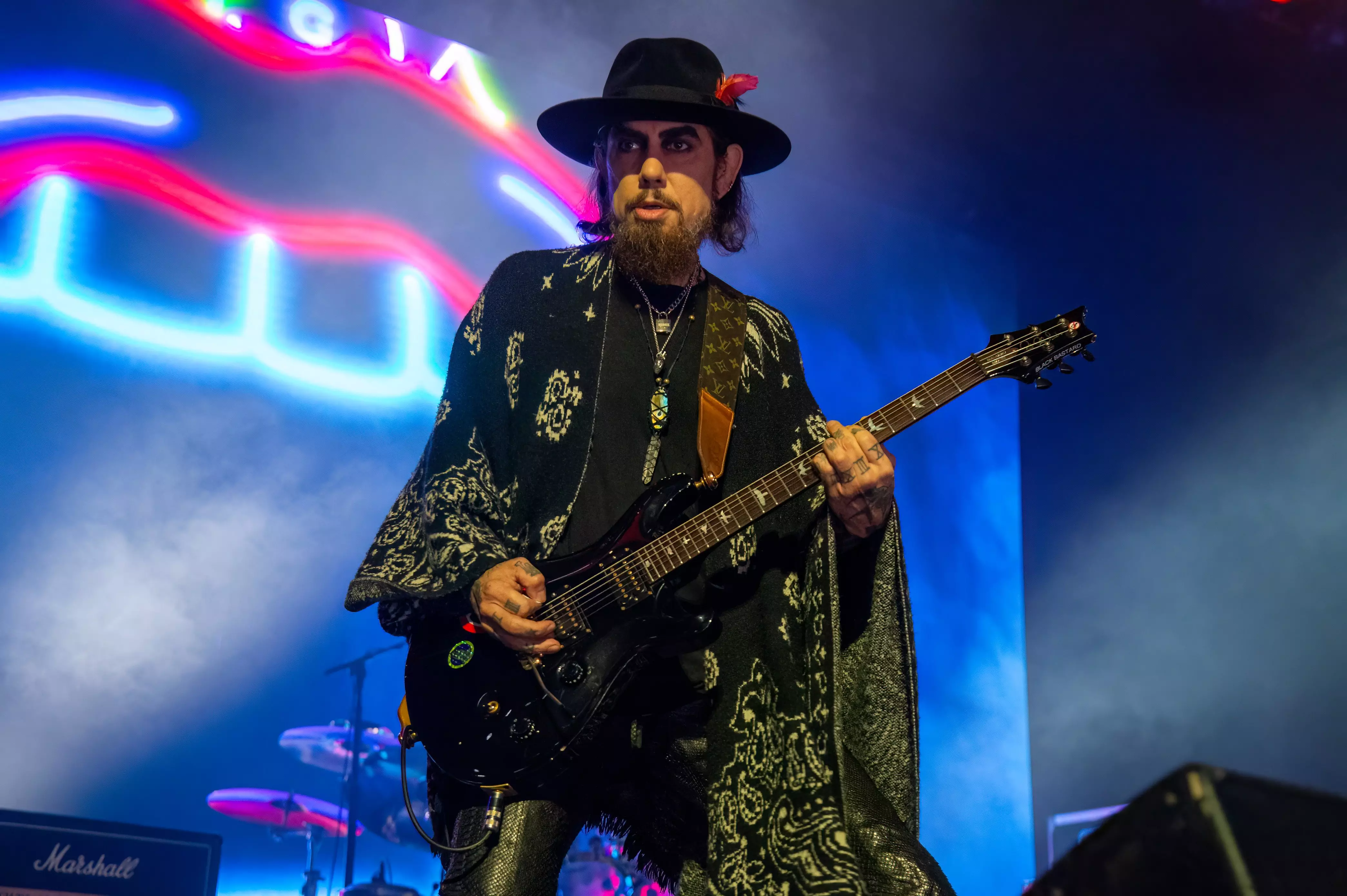
Dave Navarro Talks Jane's Addiction's "Imminent Redemption" & The Foursome’s "Secret Sauce"
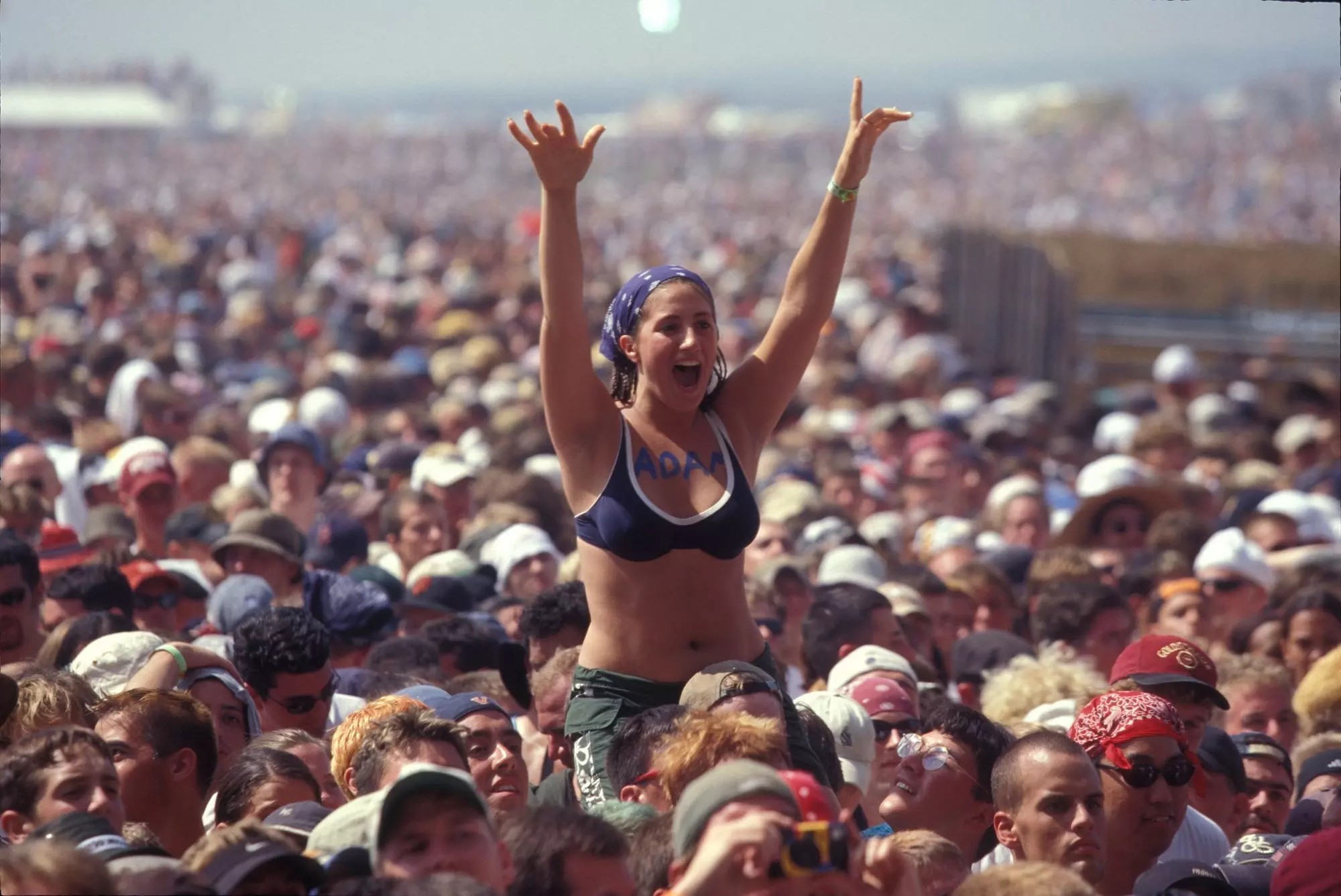
On This Day In Music: Woodstock '94 Begins In Upstate New York

Watch Alanis Morissette Win At The 1999 GRAMMYs
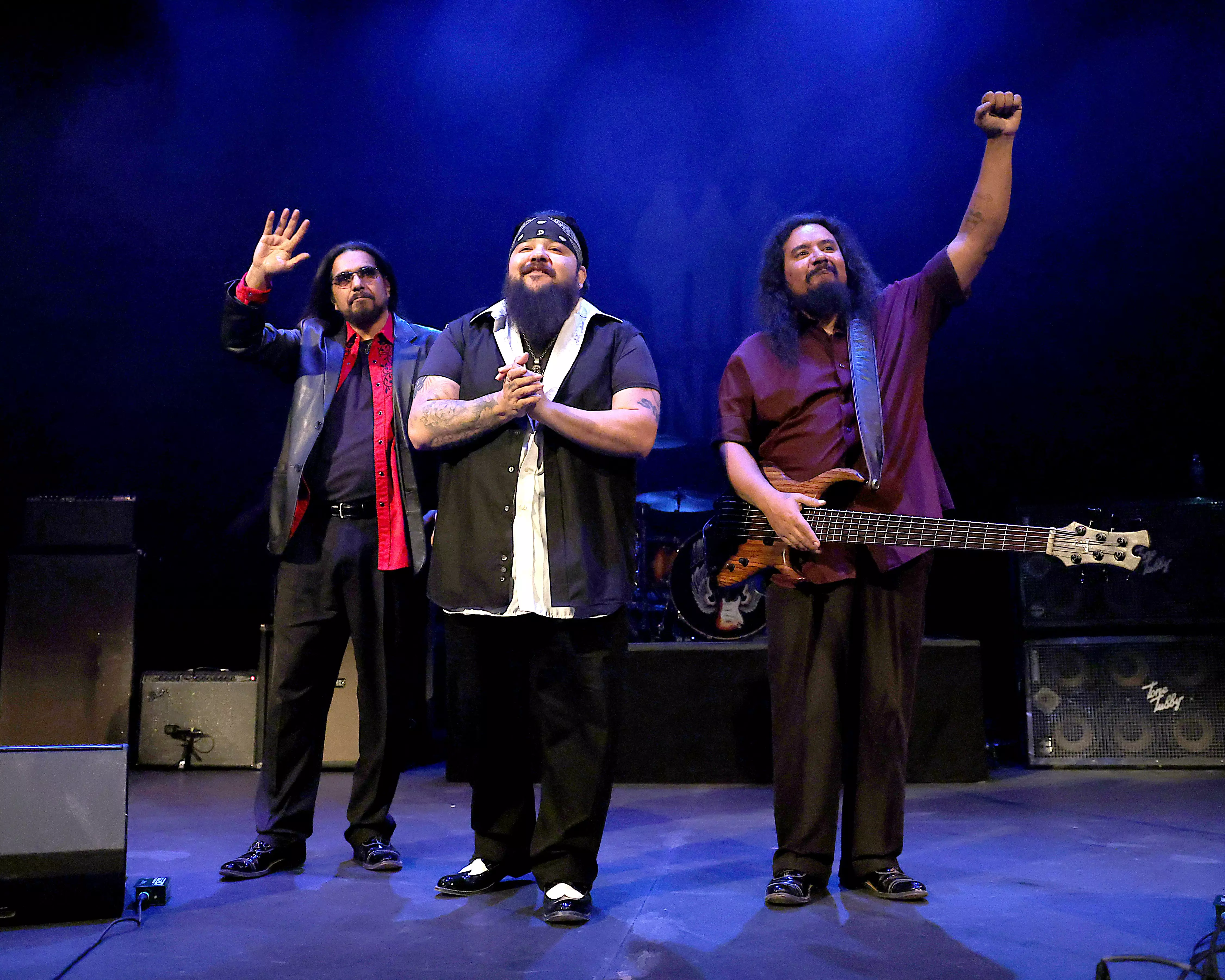
Los Lonely Boys Resurrected: The Sibling Rockers Talk Their New Album, Return To The Road & Family Magic

SCAR Covers "Iris"
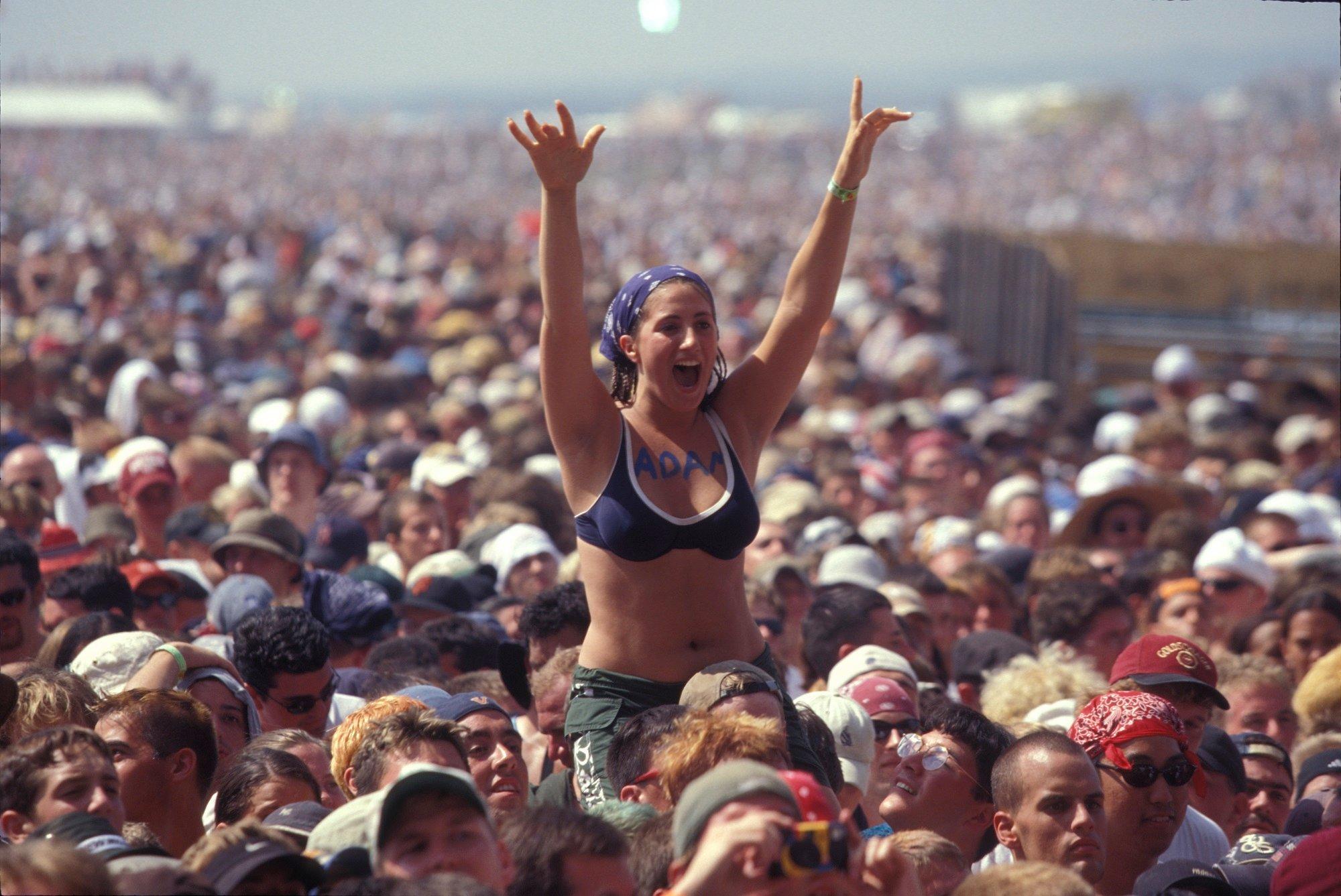
Photo: Getty Images/John Atashian
feature
On This Day In Music: Woodstock '94 Begins In Upstate New York
Held 30 years ago Aug. 12-14, Woodstock '94 featured an eclectic (and muddy) lineup that launched Nine Inch Nails, Green Day and others into the limelight.
Woodstock '94 is no middle child music festival. While not as groundbreaking as Woodstock '69 or as infamous as Woodstock '99, Woodstock '94 boasts a unique legacy that deserves recognition.
Held Aug. 12-14 in the Hudson Valley town of Saugerties, New York, Woodstock '94 was set to commemorate the silver anniversary of the original Woodstock festival in 1969. Nodding to its origins in '69, Woodstock '94 was billed as "2 More Days of Peace and Music" (a third day of the festival was eventually added).
Woodstock '94 featured a wide range of acts that both reflected the nostalgia of Woodstock '69 and highlighted a myriad of new groups. Original Woodstock performers such as Crosby, Stills & Nash (minus Neil Young) and Santana topped the bill, and now-household names including Green Day and Red Hot Chili Peppers performed some of their earliest festival sets.
Even Bob Dylan, who initially declined an appearance at Woodstock '69 despite living near the festival at the time, had a change of heart and agreed to play at Woodstock '94.
It seemed that everyone wanted to capture a sliver of the magic from the original Woodstock. Although roughly 164,000 tickets were sold, the actual number of attendees exceeded 350,000 (surpassing even Coachella 2024's attendance rates).
Spirits were high as the festival opened on Friday with dry, sunny skies highlighting performances from Sheryl Crow, Collective Soul, and others. By the weekend, the weather took a turn and transformed the festival grounds at Winston Farm in Saugerties into a giant muddy puddle. Although Woodstock '69 was also rainy and mud-filled, the madness that ensued at Woodstock '94 led it to be dubbed "Mudstock."
As Primus performed "My Name Is Mud" on Saturday, festival-goers seized the opportunity to fling the wet dirt at the band on stage.
"Once I started singing the words to "My Name Is Mud," all of a sudden huge chunks of sod started flying my way and it was pretty frightening," Primus' lead singer told Billboard 20 years later. "I still have those [speaker] cabinets to this day, and those cabinets still have mud in them."
With high energy from Friday's acts and some mud-induced chaos, attendees were buzzing with anticipation and excitement for the rest of the weekend. The party atmosphere continued throughout day two — and not solely because Blind Melon lead vocalist Shannon Hoon strolled on stage tripping on acid, wearing his girlfriend's dress.
Aerosmith may have been day two headliners, but Nine Inch Nails' 15-song set remains a highlight of Woodstock '94. The band drew the biggest crowd of the festival, and were catapulted into wider mainstream visibility. Taking advantage of the unpredictable weather, then-bassist Danny Lohner pushed lead vocalist Trent Reznor into the mud, prompting Reznor to retaliate. The other members of the band soon joined in on the fun, strutting onto the stage covered in mud.
Opening with Pretty Hate Machine's "Terrible Lie," NIN turned the massive audience into a giant mosh pit and maintained that high energy until the end of the set. While the band faced technological difficulties onstage, it only seemed to enhance their raw, gritty image.
The set was so celebrated that it is forever memorialized in the Rock & Roll Hall of Fame, with art installations featuring a life-sized mannequin replica of Reznor singing into the microphone and his keyboard, both covered in mud.
By day three, Woodstock '94 was clearly becoming an iconic music festival that would be discussed for years to come. If Saturday's mud-slinging electric performances weren't enough, the final day of the festival featured performances from Green Day, Red Hot Chili Peppers, Bob Dylan, Santana, and others.
When Green Day — fresh off the success of their third studio album Dookie — took the stage, all hell broke loose. While the band was and continues to be known for their rowdy live sets, their performance at Woodstock '94 remains unmatched.
By the time Green Day started performing, the fairgrounds had turned into a full-blown mud fight. The band tried to push through the performance and embrace the chaos, but the set came to an abrupt stop when lead singer Billie Joe Armstrong told the crowd, "Everybody say shut the f— up and we’ll stop playing." When the crowd shouted the phrase back, Armstrong said goodbye on behalf of the band, and the rest of the group fled the stage.
By the end of the performance, lead singer Billie Joe Armstrong had lost his pants and the band had to be escorted out of the festival grounds by a helicopter. On their way off the stage, security confused mud-covered bassist Mike Dirnt for a crazed fan and tackled him, leaving him with five fewer teeth than he started the set with.
"He actually sheared my teeth, and I blew like five teeth. Only one of them died. I fixed the rest of them, but he all sheared up the back of my teeth," Dirnt confessed to The Aquarian in 2013. "It was horrible. But the great thing about it is that I was able to get out of there, and I'd do it again tomorrow if I had to."
Peter Gabriel closed out the weekend by remaining true to the original mission of the festival, offering fans peace filled with good vibes. Gabriel's music, though deeply contrasting with the hard rock and punk acts that dominated the festival, provided a flawless end to the chaos that had unfolded over the past three days.
While the 1994 installment of Woodstock hasn't basked in the same spotlight as its 1969 and 1999 siblings — the latter of which has been the subject of two documentaries in as many years — it remains far from forgotten.
Woodstock '94 stands as one of the legendary music festivals of all time. Although the rain may have soaked the grounds, turning it into a muddy catastrophe, it also nourished the roots of some of the most iconic musical acts and sent them into the mainstream media. The festival was more than just a series of performances, but rather a unique cultural event.
Latest Music Festival News

On This Day In Music: Woodstock '94 Begins In Upstate New York
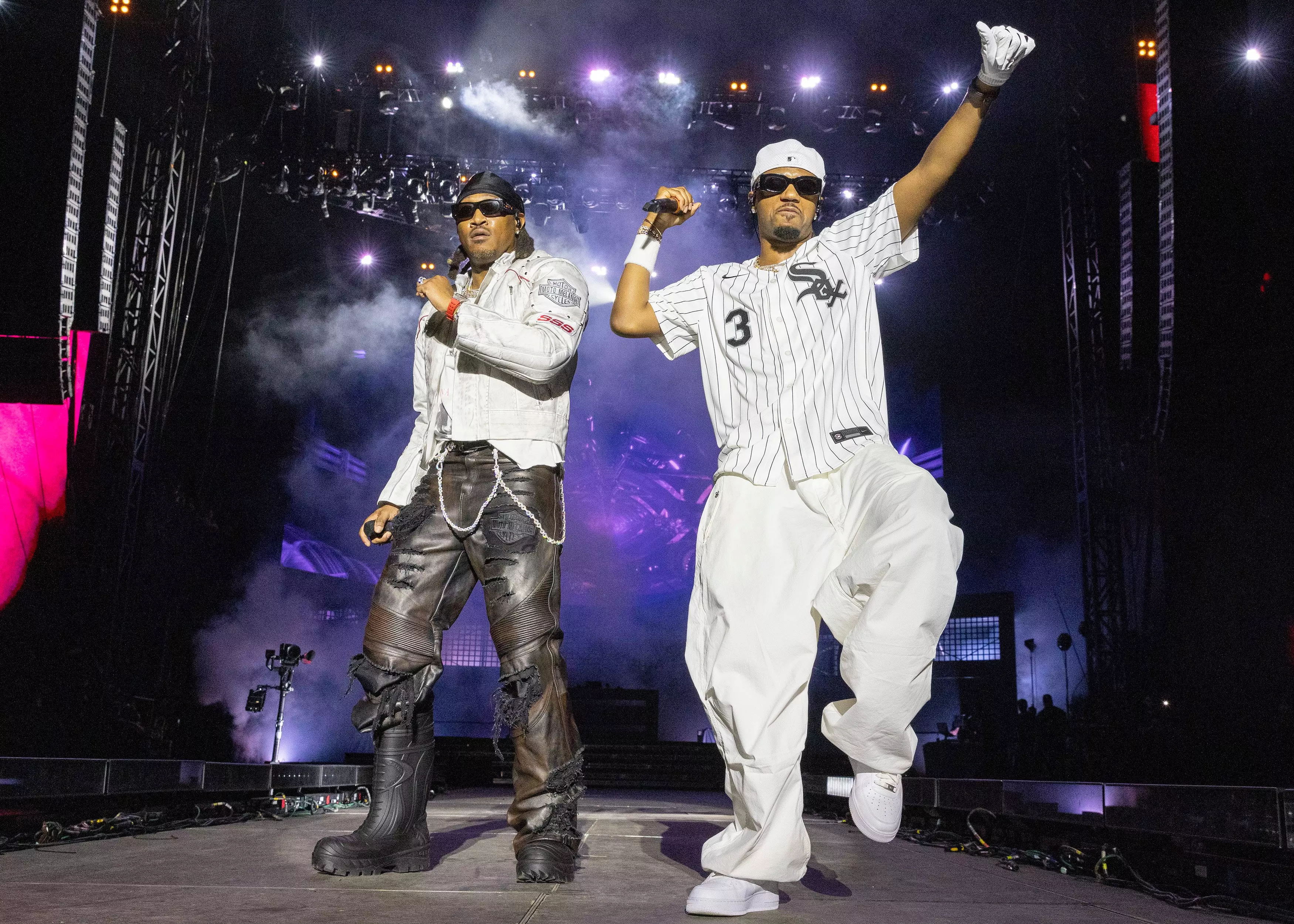
7 Stellar Sets From Lollapalooza 2024: Megan Thee Stallion, Future x Metro Boomin & More
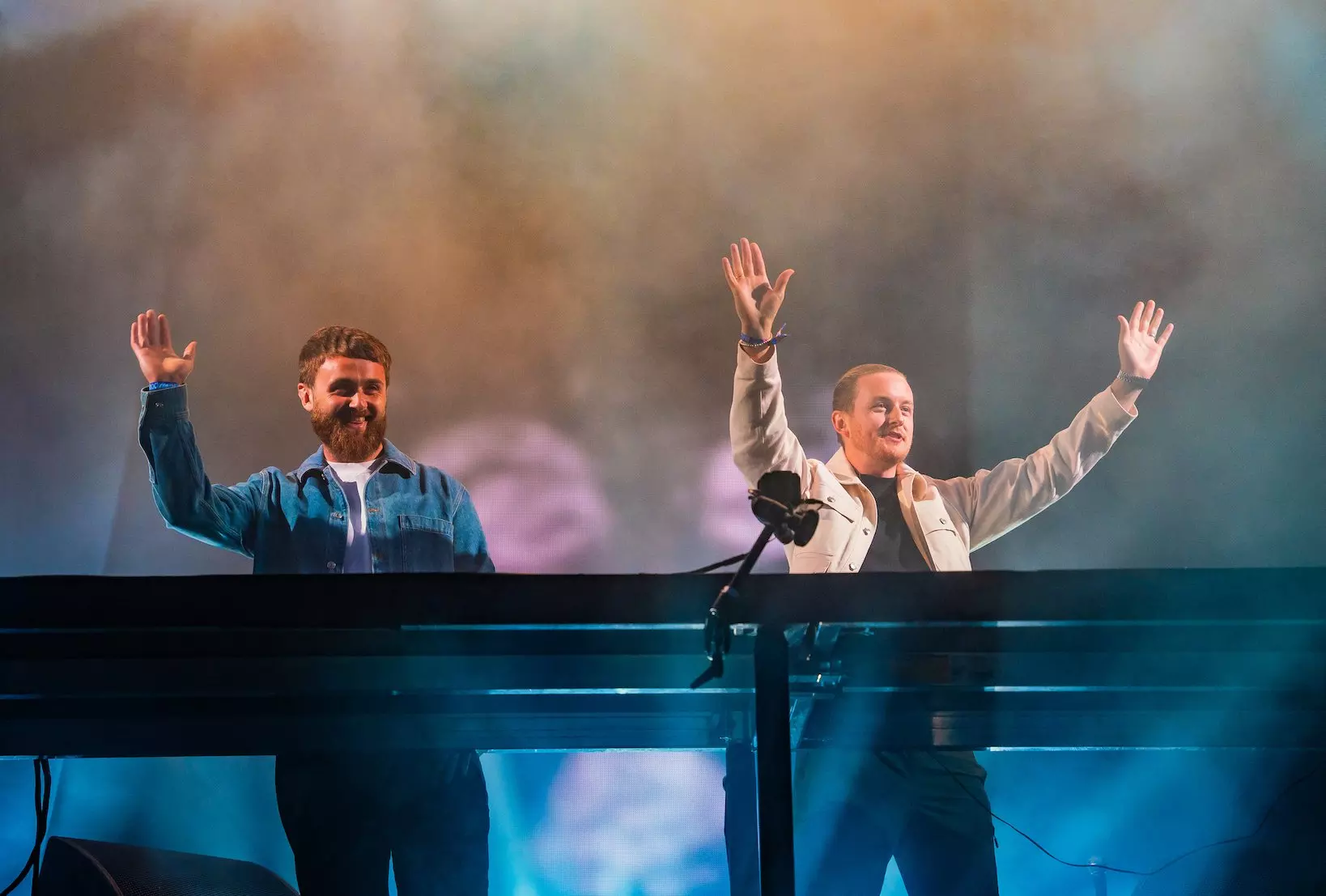
10 Cant-Miss Sets At HARD Summer 2024: Disclosure, Boys Noize, INVT & More
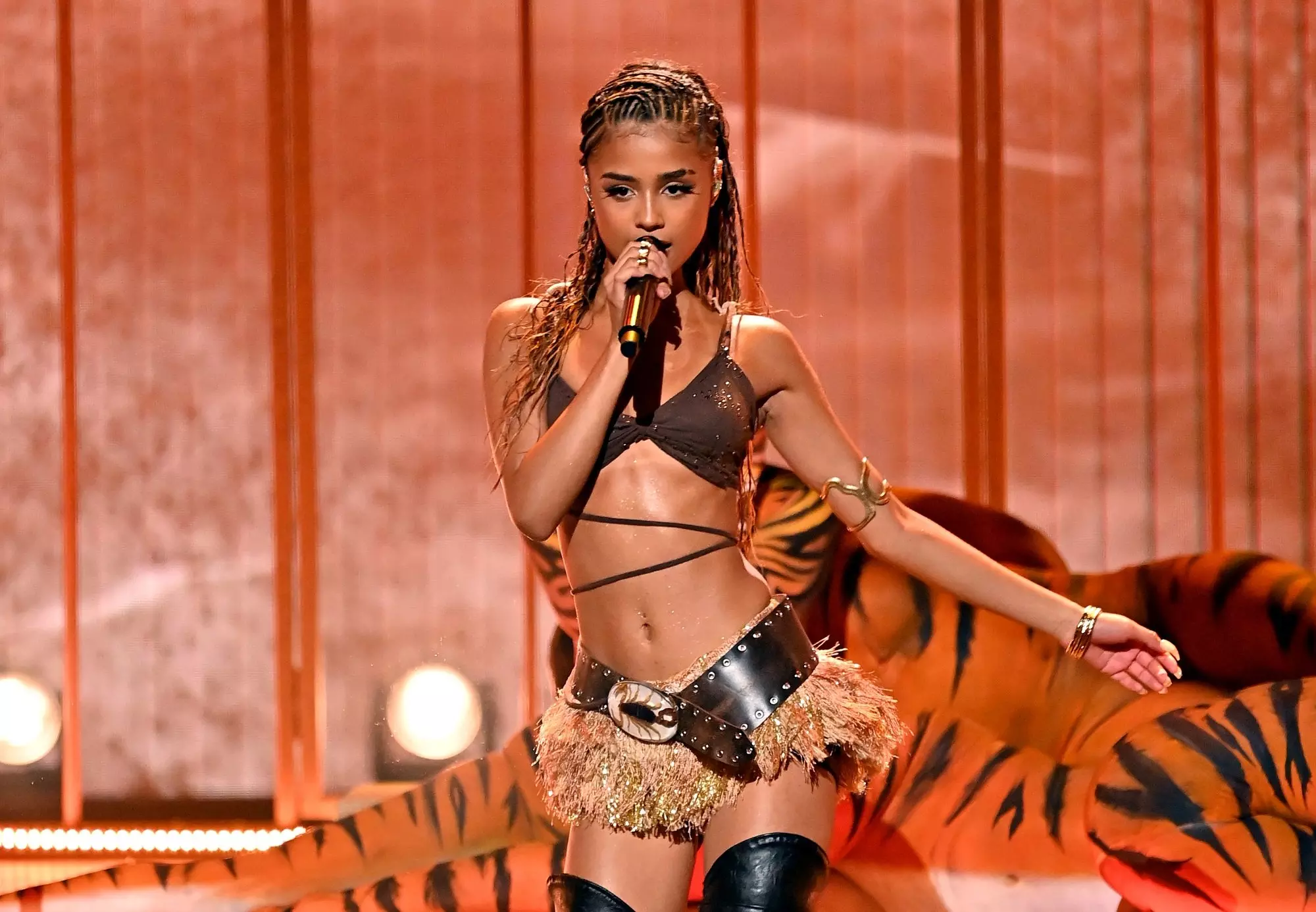
10 Must-See Acts At Lollapalooza 2024: Tyla, SiR, Stray Kids, Dominic Fike & More
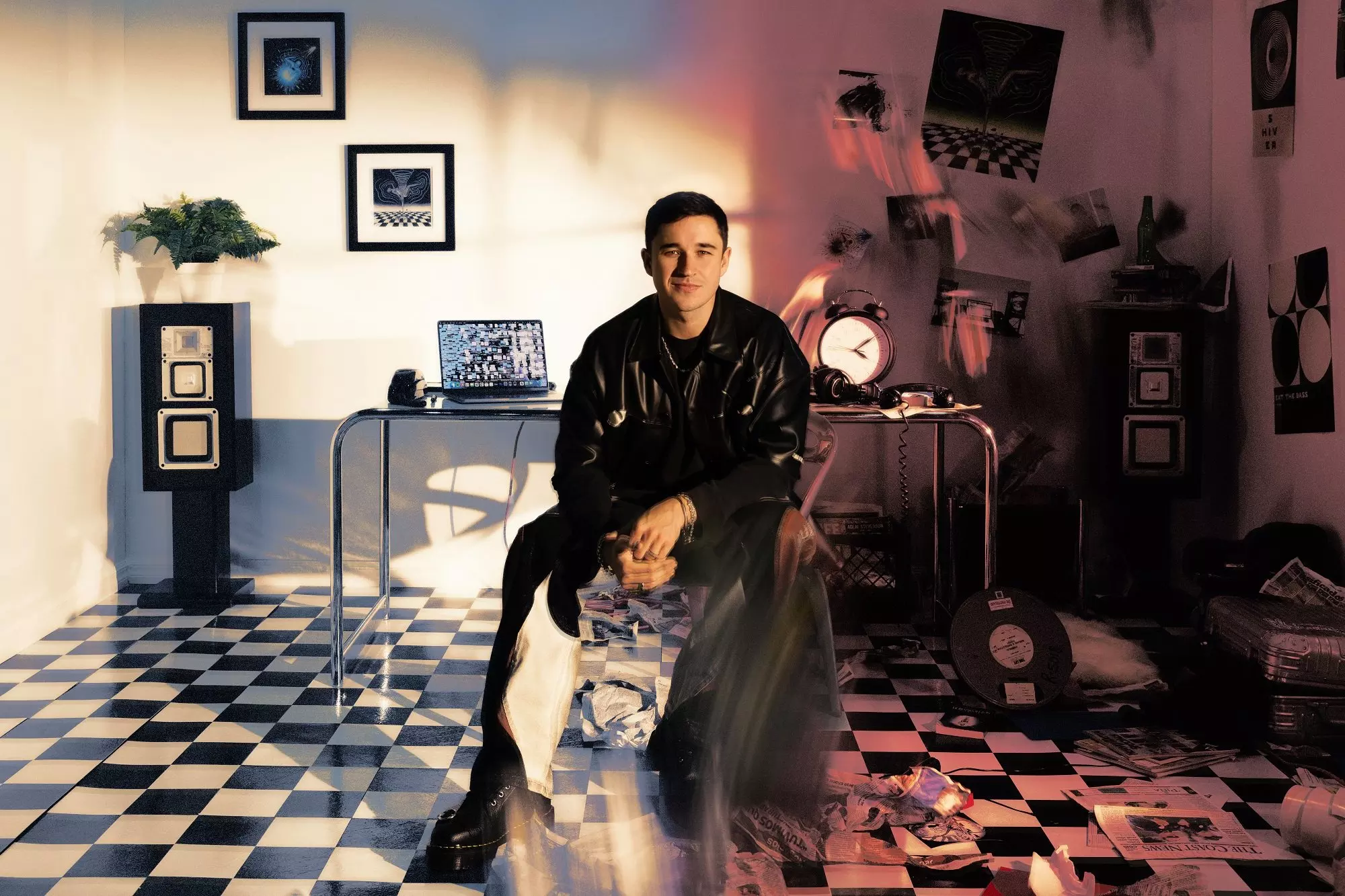
Finding 'Comfort In Chaos': John Summit On The Journey To His Debut Album
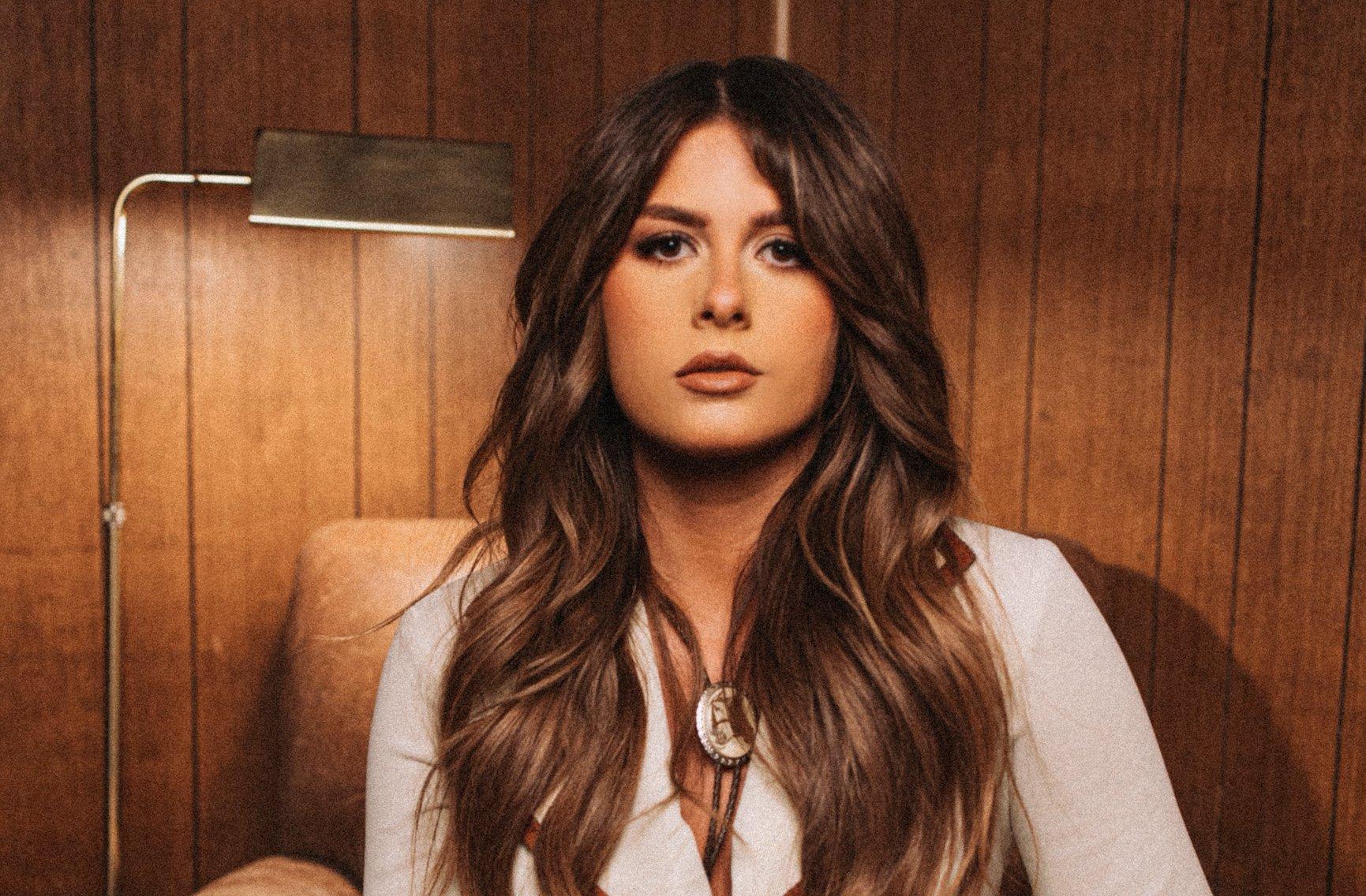
Photo: Caylee Robillard
interview
Meet Ella Langley, The "You Look Like You Love Me" Singer Ready To Be Country Music's Next Straight-Shooting Queen
With her debut album, 'hungover,' Ella Langley doubles down on the relatable, raw songwriting that's helped her become one of country's most promising new stars: "I’m here to play."
Just hours before Ella Langley released her debut album, hungover, she checked off another career goal: playing a stadium. Opening for Morgan Wallen in Kansas City, Missouri, she couldn't help but flash back to young Ella, whose musical aspirations have long been stadium-sized.
"I've been manifesting this my whole life. People used to ask me, 'How far do you want to take it?' and I was like, 'As far as I can — which is, in my brain, a stadium,'" the rising country star tells GRAMMY.com on the day of her album release. "So with the record coming out and playing my first stadium, I just kept thinking about that little girl that would lay in her room, stare at the ceiling and wonder if her dream would ever work out. And yesterday, it felt like it's coming true."
It's not entirely surprising that two major milestones happened simultaneously for the Hope Hull, Alabama native. Since she moved to Nashville in 2019, Langley has been winning over peers and fans alike with her candid storytelling and playful demeanor. It's exactly why she's been touted as an artist to watch by CMT and the Grand Ole Opry, among many others; it's also why her most recent single, the cheeky Riley Green team-up "you look like you love me," has been making waves on social media and even across the pond in the U.K., where it's already hit No. 1.
The rest of hungover further showcases her raw-and-real approach, from the twangy kiss-off "cowboy friends" to the regretful tale of "love you tonight." She masterfully finds a balance between straightforward and meaningful, ultimately reminding listeners that it's okay to not be perfect — and to lean into that.
"There's this level of honest that I'm not afraid to be," Langley says. "I think people need somebody like that."
Below, the buzzy country singer details the "badass" women who have inspired her strong-willed attitude, how she's seen her music impact fans, and why she'll never stop thinking of her growing success as "just nuts."
You've said you didn't really consider yourself a songwriter, which is why you moved to Nashville. Now you've co-written two full projects. Clearly you had some sort of songwriting talent in you!
I just have the imagination of a 10-year-old, and that helps, for sure, with songwriting. My dad's an incredible storyteller. My grandpa was an incredible storyteller. Really, storytelling is what my family did. If you come and sit at our dinner table, everyone's talking over each other, laughing loud, telling the same stories that everyone's heard. If one new person sits at the kitchen table, they're in for a loud dinner.
I was singing constantly as a kid. Like I said, I've known my whole life what I wanted to do, so I was always doing it. But I tried to sit down and write songs, and every time I would try to write a whole song, it came out weird. Melodies are always what I would write a lot of, I still feel like [that's] one of my strong suits is in a room.
COVID hit six months after I moved to town, and that was a blessing in disguise for me. I was playing shows still back in Alabama and all over the Southeast. That's how I was paying my bills. I was playing cover gigs — this only job I've ever had, minus a stint in high school with a trampoline park. But that didn't last too long. [Laughs.]
When I [first] moved, I was struggling figuring out how to write. But then COVID hit, and I couldn't do anything but write songs. I found some incredible people in that six months I had before [the pandemic], and that's all I did was write, write, write.
What was the first song that you wrote that you were like, This is who I want to be as an artist?
I don't think there was one song that did that for me. I was talking to Lainey Wilson last night about how it's really crazy [that] when you move to town, people are like, "Who are you as an artist?" You ask a 20-year-old who they are — I don't know! I don't know anything! I'm just doing my best. I'm just trying to survive without my parents telling me what to do right now. So really, this record is my life that I've written from 20 to 25. They're all just journal entries.
We cut "paint in town blue," "hungover," "you look like you love me," and "nicotine" all this month last year, and I still had no idea what the title was going to be. When I was driving around listening to the mixes, I was listening to "hungover." When I was thinking about the title hungover, and what that represents, I was like, Oh, my God, it just does represent everyone's life from 18 to 25. It's growing up, and just kind of giving yourself grace to live your life and figure that out.
Since you've been manifesting this for your whole life, did you have a vision of what you were wanting to bring to country music?
No. Putting this record together has made it make sense. You know, you go so long [playing] cover gigs, and then [when] I started doing my first tour, I'm singing a 45-minute set and I have one song out.
It took this record, putting this together, and kind of figuring that out to really understand who I want to be for my fans — and actually realizing that I have fans now, which is crazy to think and say. Every show I see more and more people singing, and it's as many girls as it is guys singing the same songs. And I love that they're just singing their hearts out.
I think what I want to be for my fans and for country music is just — grace is my word. You don't always have to be perfect. None of us are. So just do your best and love what you do.
The titles of both of the projects you've put out, your EP Excuse The Mess and now hungover, are so indicative of that. Have you had a chance to go back to Excuse The Mess and compare the two, or think about how much you've grown?
Definitely. I thought a lot about Excuse The Mess when I was building this record. I'm so proud of that little project and what came out of it. I got nominated for my first award ever off that record. And the two acoustic songs at the end of it are still two of my favorite songs I've ever written.
I think Excuse The Mess to hungover is a good jump. It's almost like an extension of that. But like I said, my songs are journal entries of my life. [For] the next one, hopefully I won't do as many crazy ass things. [Laughs.]
But that's what makes you relatable and so lovable — you're just singing about the stuff that mid 20-somethings do. You make the mistakes you learn from them, and you sing about them, and everybody loves it. We've all been there!
Exactly. It's funny, I started realizing pretty early on in town how honest I was in [songwriting sessions]. Because a lot of writers were like, "Dang!" I always say that the songwriters in Nashville know way too much about my personal life.
I played a show when I was on tour with Riley [Green] earlier this year. We played in Huntsville, Alabama, and this was the first time I've played a show in Alabama in a minute. We did a meet and greet, and so many people [I know] came. My little sister's going into her senior year [of high school]...she came up to me and she was like, "Watching you do what you do — just the fact that you moved, and watching you just keep pushing at it, I can get up and go to the gym. I can get up and clean my house. You don't understand the hope and motivation that it gives people like us."
That was kind of a big moment for me. This is affecting people now. It's just nuts.
See, you can keep doing crazy s— and you'll still have fans!
I've been this way since the day I was born, so I figure it's not going to stop now. My frontal cortex did develop, so maybe I'll think a little bit more.
I had a feeling you've always been a straight shooter.
It's kind of funny — I think it's something that, if somebody's new [on my team], they have to get used to. If you're used to it, it's kind of nice. I say exactly what I mean all the time. I never beat around the bush!
Where do you think you got that from?
My dad. He's honest — and my mom's honest, but they're very honest in different ways. My dad's a little more Southern Baptist where he's, like, around some people, gonna be a little sweeter. That does rub off on me, because I'm from the South. But, I don't know, I've just always said exactly what I think. Sometimes it's good and sometimes it's not. But the older I get, the more I realize it pays off!
It's made me some really cool relationships in this job, with other artists and just people in general. I met Eric Church for the first time the other night. In Nashville, there's this unspoken rule about how you treat artists — especially when you're another artist, you don't want to just walk up and be weird. But I did the Toby Keith tribute [in Nashville on July 29], and whenever I heard Eric Church was playing it [too], I couldn't stop thinking, Am I going to get a chance to shake this man's hand? He's such a legend to me.
There was a bar side stage, and he was standing at the end of the bar, right next to Lainey [Wilson] and HARDY and I'm like, Oh my God, that's perfect. I'm friends with them, this is my in! I walked up there and I was like, "I'm not trying to be weird, and if I am, please just tell me. But I have to tell you, I just think you're a badass, and I would kick myself in the ass if I did not shake your hand and tell you that." And that's how I got a tour with Jamey Johnson — I said the exact same thing.
It's like, how are you surrounded by these people that you've grown up watching, wanting to do what they do, admiring, learning from, and then you just get to meet them, and they're all "Love your voice, love your songs!" Like, "You know who I am? Wow, I'm gonna need to sit down."
So that's how Eric responded?
Yes! It was nuts! Then I leaned into HARDY and I said, "Do you remember the first time you were around the most famous people you've ever been around?" He said, "Yeah, is that you right now?" I said, "Yeah." He was like, "That's awesome!" He had the biggest grin on his face.
It's cool, because Eric is a straight shooter too, so I'm sure he loves seeing another female artist doing that. Because since, like, Miranda Lambert, there really hasn't been a female country artist with such a power stance like, "No, I'm not dealing with your BS."
That's why I think "you look like you love me" is such a cool song, because it is really about women empowerment. My mom's a strong ass female. My grandma was that way. A lot of women in my life are just badasses, and I've seen them go through a lot of s—. I grew up watching them stand up for themselves.
And the older you get, I guess, the more feminine rage you get. I don't know if that's how it usually goes, but for me personally, yes. You know, like "cowboy friends" — you can do whatever you want. Why does it have to be the guy? We know we want more than men, always! Unless you ask me where I want to eat, I always know what I want!
So, go walk up to him! Even if it doesn't work out, whatever. One time I did that at the gym and it didn't work out. My photographer watched me do it. It was terrible.
Something tells me that man regrets turning you down.
He had a girlfriend. Or maybe he didn't and he just said that. [Laughs.] Sometimes you just have to laugh at yourself. It's fine — you don't always have to be cool, you know?
Has anyone ever shut you down for being so honest, especially as a female artist?
No, I think it surprises 'em more than anything.
I've been on tour with a lot of outlaws. I started out with Randy Houser, then I went on a Koe Wetzel, and then we did Jamey Johnson, and then Cody Johnson, and now we've got Riley [Green] and HARDY and Morgan [Wallen]. And that's a bunch of outlaws, if you ask me. So you kind of do have to be a badass female around here, you know?
I'm here to play. I'm here to show everybody what I've been working so hard on, and what my band and my team have been working hard on. And I think they respect that. They respect the honesty and the grind that I have. Real sees real, and I think that's what's happening.
Now that you've checked off the debut album, what else are you working on manifesting?
So many things. I have so many plans. I've always been like this. I have so many things spinning in my brain. I'm already working on the title for the next record. The record's out, so now it's time for the next thing. Everyone can listen to this while I'm working on that!
So you're a big manifester?
Oh, constantly. I write in my journal, I make manifestation boards. Every New Year's for the past two or three years, me and a bunch of my team get together, and we have a big arts and crafts party. We play music and manifest. It's crazy to see the things that I put on my board last year that are coming true this year.
What are some of those things?
[Performing at] Red Rocks, the album coming out, getting on a bus. I made friends with Miranda Lambert this year. She's been on my manifestation board three years in a row, so that was cool.
I think I put a gold record on there, which happened this year. Me and Caylee — my photographer who also helps run my social media — we had a goal for how many followers we wanted to get to, and we've already beat that. It's just nuts to see the things that you really hope for come true.
Latest News & Exclusive Videos

Dave Navarro Talks Jane's Addiction's "Imminent Redemption" & The Foursome’s "Secret Sauce"

On This Day In Music: Woodstock '94 Begins In Upstate New York
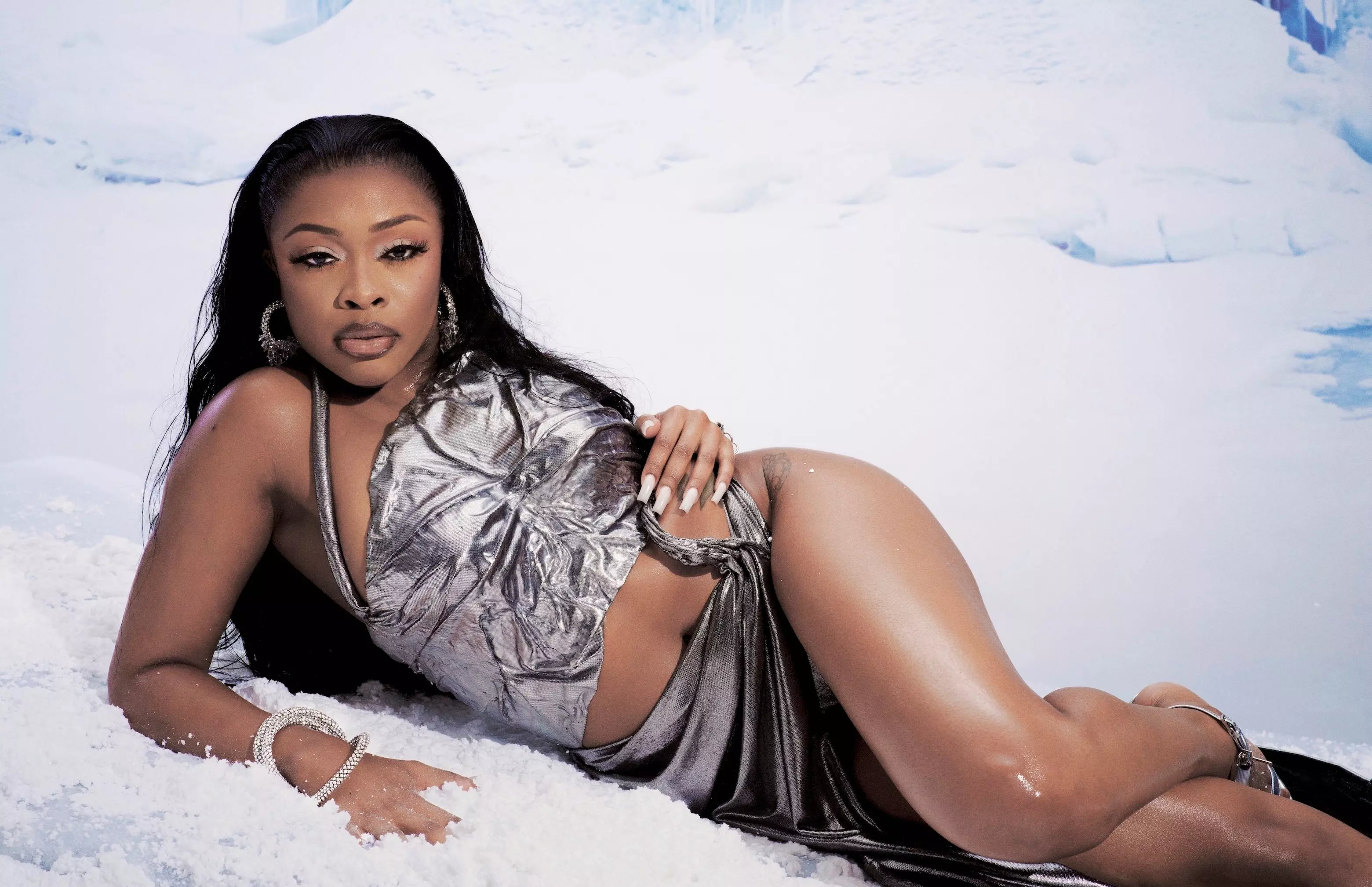
With Her 'Winter's Diary' Return, Tink Is Ready To Rep For "The Girls Going Through It"
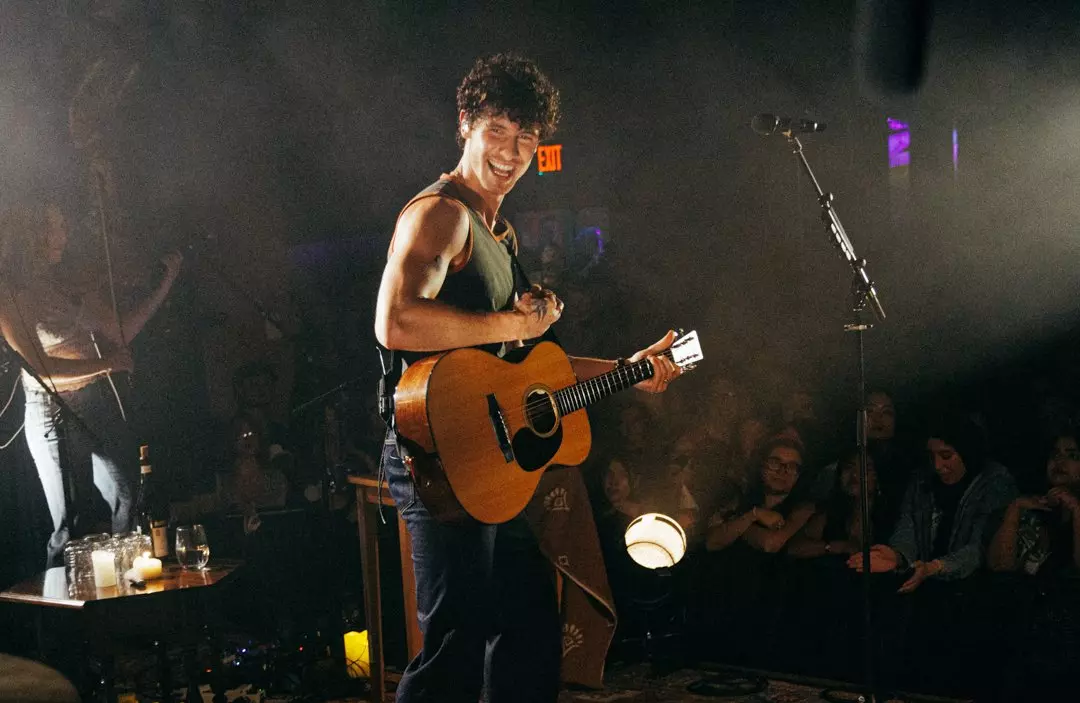
New Music Friday: Listen To New Songs From ATEEZ & G-Eazy, Shawn Mendes, Latto, & More

Watch Alanis Morissette Win At The 1999 GRAMMYs
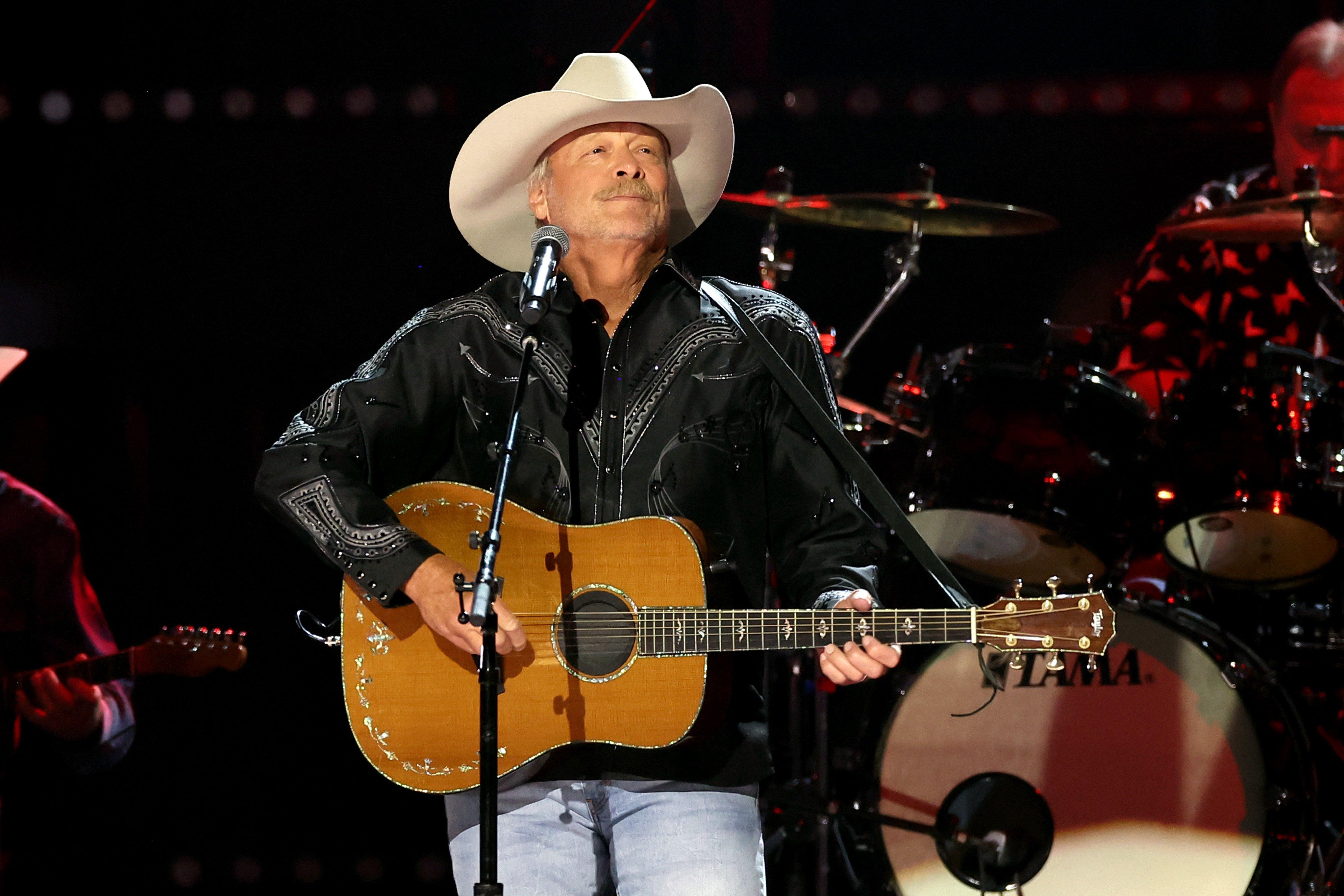
Photo: Terry Wyatt/WireImage
list
Alan Jackson's Biggest Songs: "Chattahoochee" & 11 More Of The Country Icon's Most Memorable Hits
As Alan Jackson celebrates his legacy and hit-filled catalog with his Last Call: One More for the Road Tour, revisit some of the classics that made him one of country music's greats.
It's hard to imagine country music without Alan Jackson. One of the trailblazers who helped define an entire generation of country music, his accolades include 26 No. 1s on country radio, over 75 million records sold worldwide, two GRAMMYs, and inductions into both the Grand Ole Opry and the Country Music Hall of Fame.
It's been a remarkable run for the Newnan, Georgia native that first moved to Nashville in the mid-80's to chase his musical dreams. He'd eventually land a job in The Nashville Network's mailroom and get put into contact with Glen Campbell, whom his wife met while working as a flight attendant. With the "Rhinestone Cowboy" in his corner, Jackson soon signed his first record deal with Arista Nashville in 1989 and released his debut record, Here In The Real World, the following year, and the rest is history.
In the 20 albums that have followed, Jackson has staked his claim as not just one of the best country artists of the 90's and 2000's, but one of the greatest of all time. While the numbers are certainly in his favor, the most undeniable variable in the equation is how adored he is by fans. That love and appreciation will be on full display during Jackson's "Last Call: One More For The Road Tour," which kicked off Aug. 2 at Boston's TD Garden and wraps up May 17, 2025 at Milwaukee's Fiserv Forum.
To commemorate Jackson's legacy and celebrate his final act, here are a dozen bangers from the two-time GRAMMY winner that helped cement his Hall of Fame status.
"Chasin' That Neon Rainbow," 'Here In The Real World' (1990)
Music City is filled with folks who want to make it big in the music business, grinding it out on Broadway and around town in hopes of catching their big break. Jackson explores that concept with "Chasin' That Neon Rainbow," detailing his own journey from playing Georgia's honky tonk circuit to heading to Nashville's Music Row to live out his lifelong dream — because, as he says in the chorus, "all I've ever wanted is to pick this guitar and sing."
Though Jackson's next single, "I'd Love You All Over Again," marked his first No. 1, "Chasin' That Neon Rainbow" reached No. 2 and helped introduce his signature twangy, yet soulful sound. Along with being a fan favorite, the song has clearly remained important to Jackson, too, as it's still a set staple to this day.
"Don't Rock The Jukebox," 'Don't Rock The Jukebox' (1991)
While Jackson isn't necessarily known for writing tear-in-your-beer tunes, he can still do it with the best of them. Take "Don't Rock The Jukebox," a story about a down-on-his-luck bar patron longing for some country music to ail his heartbreak.
As such, throughout the song he can be heard pleading to other barflys to not put on any rock music because "I wanna hear some Jones/ 'Cause my heart ain't ready/ For the Rolling Stones." It's a story most of us have seen play out a time or two ourselves, and the homage to George Jones — one of the best penners of tear-in-your-beer songs — is a nice touch.
"Chattahoochee," 'A Lot About Livin' (And A Little 'Bout Love)' (1992)
The country hit of the summer in 1993, "Chattahoochee" tells the tale of having fun and growing up near the river of the same name straddling the Georgia-Florida-Alabama border. While the song delves into Jackson's own experiences growing up there, it's also ambiguous enough to fit with anyone coming from small town America, or at least anywhere that "It gets hotter than a hoochie coochie."
Despite Jackson initially thinking it wouldn't be a hit, "Chattahoochee" quickly transformed into one of his biggest songs, the reverberations of which are still being felt today. In the 30 years since, ditties about lighthearted summer fun on the water have become as central to country songwriting as pickup trucks, cheap beer and heartbreak, and "Chattahoochee" was one of the first to kickstart that trend.
"Livin' On Love," 'Who I Am' (1994)
Jackson's 40+ year marriage to his wife, Denise, has long served as inspiration for his music, and their relationship takes center stage on "Livin' On Love." The sentimental song sees the singer looking back on their time spent together, from their humble beginnings before he broke through in music ("Two young people without a thing") to raising a family and still being just as crazy about each other through it all.
While the retrospective tune illustrates Jackson's endearing love for his wife that "can walk through a fire without blinkin'," its message is one that hits home with lovebirds everywhere — no doubt a big reason the song eventually became his ninth No. 1 hit.
"Gone Country," 'Who I Am' (1994)
The most revered track from Jackson's stacked 1994 album Who I Am, "Gone Country" serves as a commentary of the country music industry, which was in its '90s heyday at the time of the song's release. While it's meant in part as a jab at those in the business who value money over artistic integrity, the tune is also intended as a celebration of the success of country music in the '90s, and how the music business was adapting to capitalize on the craze. ("Yeah, we've gone county/ The whole world's gone country," he sings on the final verses.)
The song has come full circle as of late, given the current moment country music is having in pop culture — from the success of stars like Morgan Wallen and Zach Bryan to crossover records from Beyoncé, Post Malone and others. Not only has that proven the song to be just as relevant 30 years later, but it also shows just how spot-on Jackson's postulating was.
"Little Bitty," 'Everything I Love' (1996)
Sometimes life's best gifts come in the smallest of packages. This is evidenced by Jackson's "Little Bitty," a little ditty from 1996's Everything I Love that became the Georgian's 14th No. 1 hit.
Aside from its quirky, lighthearted narrative about finding the joys in life's small and mundane moments, the song also contains an underlying message of having a positive mindset and not letting every little transgression get you down. Its exquisite word play and universal message is just as powerful now as it was when Jackson first recorded it — yet another example of how Jackson's songwriting resonates with listeners past, present and future.
"Where I Come From," 'When Somebody Loves You' (2000)
The third single from 2000's When Somebody Loves You, "Where I Come From" details a long-haul truck driver's various encounters on the road. Whether it's a cop in New Jersey questioning his accent or a barbecue dinner in Detroit that isn't anything like what his mother would make, the song is a metaphorical pondering of the ways Jackson's Southern upbringing varies from the places he passes through.
Each story grows goofier than the last, illustrating Jackon's penchant for simple yet captivating storytelling. And while "Where I Come From" is ultimately rooted in his Southern culture, his passionate delivery on the anthemic chorus makes anyone want to sing along, no matter where you're from.
"Where Were You (When The World Stopped Turning)," 'Drive' (2002)
While countless songs have been written about the September 11, 2001 attacks, it's hard to find one with more apolitical grace or as much empathy as Alan Jackson on "Where Were You (When The World Stopped Turning)."
Rather than containing vengeful imagery of boots kicking butts, the song instead details Jackson's own experiences and mixed emotions of the day — from shouting in anger to sitting down to cry — to create arguably his most powerful and unifying piece of work. And its moving message resonated with country fans, earning Jackson his 19th No. 1.
"Drive (For Daddy Gene)," 'Drive' (2002)
Written in remembrance of his late father Eugene, "Drive (For Daddy Gene") sees Jackson recalling memories with his dad — particularly, how he'd let him drive around the countryside near their home in the beat up truck they worked on together.
As the emotions and memories keep flooding back, Jackson eventually reflects on how he's already begun to make similar memories with his daughters. Altogether, the stories make for one of Jackson's most poignant songs that — combined with the single that preceded it, "Where Were You (When The World Stopped Turning)" — show how he strikes a chord with listeners on somber songs just as much as his upbeat country anthems.
"Remember When," 'Greatest Hits Volume II' (2003)
Despite delivering a couple of his most poignant hits on 2002's Drive, Jackson delivered his most heartfelt love letter to date with 2003's "Remember When." Much like "Livin' On Love," the song looks back on his marriage and how the bond with his wife has only strengthened over time.
One of two new tracks featured on Jackson's second greatest hits collection, "Remember When" is a stark contrast from the classic drinking song "It's Five O'Clock Somewhere" featuring Jimmy Buffett. But while the latter became Jackson's biggest crossover hit, "Remember When" remains the country legend's only single to be certified four-times platinum by the RIAA (as of press time) — further proof that Jackson made an impact with his music no matter the subject.
"Freight Train," 'Freight Train' (2010)
The title track from Jackson's 16th studio record, "Freight Train" visualizes the singer as a steam locomotive running down the tracks away from the woman that scorned him. On it, he's left to untangle himself from the twisted emotions that had kept him from leaving her sooner: "Well every time I talk to you I hear your jealous lines/ I feel like I've been left abandoned on some old railway side."
Even nearly 20 albums into his career, Jackson was still delivering stories that listeners hadn't heard from him before — and "Freight Train" is a prime example of how Jackson has long been able to keep listeners on their toes.
"Long Hard Road," 'The Bluegrass Album' (2013)
Though Jackson is known as one of the world's most accomplished country musicians, he has also forayed into gospel and bluegrass within his mammoth 21-album collection. "Long Hard Road" — a deep cut from his simply titled 2013 effort, The Bluegrass Album — is a perfect example of the latter, as Jackson sings of a rugged journey that's changed him "for good and some for bad" and made him long for a way back home.
The song's hard-driving soundscapes and bold group harmonies make it a natural fit in the bluegrass space. At the same time, it maintains the integrity and distinct voice that's made Jackson him such a beloved star — one whose legacy will live on long after his farewell tour concludes.
Latest News & Exclusive Videos

Dave Navarro Talks Jane's Addiction's "Imminent Redemption" & The Foursome’s "Secret Sauce"

On This Day In Music: Woodstock '94 Begins In Upstate New York

With Her 'Winter's Diary' Return, Tink Is Ready To Rep For "The Girls Going Through It"

New Music Friday: Listen To New Songs From ATEEZ & G-Eazy, Shawn Mendes, Latto, & More

Watch Alanis Morissette Win At The 1999 GRAMMYs
